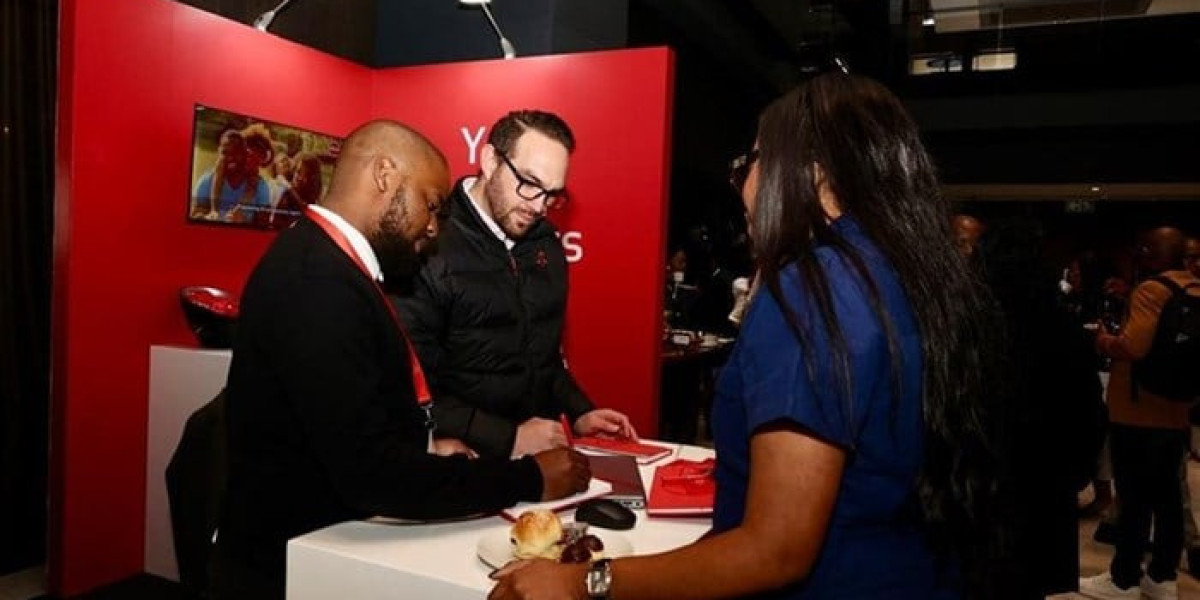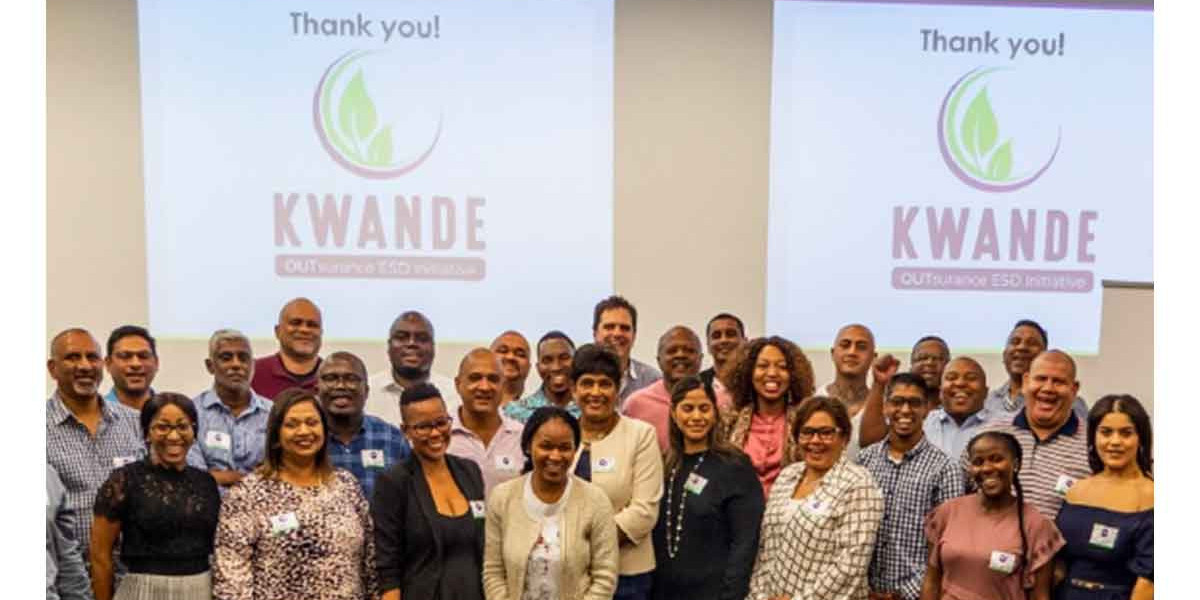South Africa’s entrepreneurs operate in a challenging economy marked by high unemployment (32.9% as of Q1 2025 and inequality. In this environment, networking becomes a critical lifeline. By connecting with peers, mentors, customers and investors, business owners tap into new opportunities and resources. For example, logistics firm DHL notes that about half of South African businesses credit “strong personal networks” as the primary reason for their success. Personal networks – built at events, co‐working spaces and industry associations – offer support, advice, and access to markets that individual entrepreneurs cannot achieve alone.
Networking opens doors to markets and partners, cultivates mentors and advisors, and builds a “social capital” reservoir to draw on in difficult times. As one entrepreneurship consultant observes, networking is fundamental: “Networking is one of the most essential skills for entrepreneurs. It can help you find new opportunities, customers, partners, investors, mentors, and more”. The rest of this article explores how South African entrepreneurs can use networking for opportunity generation, mentorship, funding, knowledge sharing, visibility, and resilience, with local examples and resources.
Generating Business Opportunities
Networking directly leads to new business opportunities. By meeting prospects and collaborators at industry events, trade shows or informal meetups, entrepreneurs generate sales leads and partnerships. For instance, personal introductions often translate into customer referrals or joint ventures. As the LinkedIn article above highlights, entrepreneurs can use networking to find “new customers, partners, investors, mentors, and more”. In practice, a South African tech startup founder might meet a potential reseller at a Silicon Cape meetup or connect with a retail buyer at the SA Innovation Summit, turning that introduction into a pilot order or distribution agreement.
Local events and gatherings are particularly valuable. The SA Innovation Summit – billed as “Africa’s Premier Innovation and Start-up Summit” – attracts thousands of entrepreneurs, investors and corporates. Its organizers promise attendees a chance to “connect [to] investors and innovators” and “drive deals”. Such gatherings are prime hunting grounds for opportunity: companies often launch products at trade fairs or pitch competitions, gaining instant market feedback. Similarly, sector expos (e.g. mining, agritech or creative industries) allow entrepreneurs to showcase new offerings. In the image above, a bustling trade exhibition hall is shown – these are “prime spots to showcase [your] products or services to a crowd of potential customers”. In short, face-to-face networking exposes entrepreneurs to buyers, partners and trends they might never encounter alone.
Building Mentorship and Support Networks
Equally important is the mentorship and guidance that networking yields. Through connections, newer entrepreneurs link up with experienced founders, industry experts, and business advisors who can coach them. Local programs and communities facilitate these relationships. For example, Heavy Chef – a prominent South African entrepreneur education platform – brings business owners together in Masterclasses and events. Co-founder Andrew Smith (also co-founder of Yuppiechef) praises Heavy Chef for “equipping entrepreneurs with practical knowledge and the support of a community”. Testimonials from Heavy Chef members echo this: one entrepreneur notes that it “connects us to a community of peers and other high-calibre entrepreneurs who have walked the path before”. These peer networks let entrepreneurs share real-world insights (e.g. how to price services or manage cashflow), and often introduce mentors who hold monthly office hours or one-on-one coaching sessions.
Beyond commercial programs like Heavy Chef, many South African entrepreneurs tap informal networks. Nonprofits and accelerators (Endeavor South Africa, Tech4Africa, etc.) match high-growth founders with seasoned mentors. Women-led networks – such as She Leads Africa and AWIEF – offer mentorship specifically for female entrepreneurs, combining online forums with regional bootcamps. Local incubators (e.g. UCT’s LaunchLab or universities’ technology transfer offices) typically assign mentors from alumni and corporate sponsors. Even coworking hubs like Workshop17 or Bandwidth Barn foster mentorship circles: experienced tenants advise newcomers in shared workspaces. In all these settings, the essential mechanism is the same: networking produces mentor–mentee ties. During the pandemic, for instance, a Ventureburn commentator noted a surge of “businesspeople – corporates and entrepreneurs – working with smaller companies, building new partnerships [and] networking, encouraging innovation”. This “paying it forward” created an informal mentoring engine that helped many small businesses survive lockdowns.
Key insight: By investing time in networks (meetups, co-working, industry associations), entrepreneurs expand their access to mentors. These mentors share knowledge, give moral support, and can open further doors (e.g. introductions to their own networks).
Accessing Funding Through Networks
Networking is crucial for unlocking financing and investment. In South Africa, where formal capital markets are still maturing, personal connections often bridge the gap between entrepreneurs and funders. Angel investors and VCs typically rely on networks to find deals – they participate in investor syndicates, pitch events and angel networks that source projects through referrals. The South African Business Angel Network (SABAN) explicitly emphasizes this: one of its objectives is “networking with peers”. This reflects a broader truth: meeting the right person at a networking event can lead directly to funding. For example, the Ventureburn-backed African Pitch Masters and local competitions sponsored by banks or corporates connect finalists with investors in a networking context. Startups at Demo Day events routinely find investors in the audience or later at post-event mixers.
Networks also facilitate more creative funding channels. Many SA startups secure friends-and-family or angel funding through personal introductions made at community events. According to University of Pretoria research, entrepreneurs identify finance as the single most important resource provided by their networks. In that study, finance was the “most important resource” gained from networking, and entrepreneurs cited “financial growth” as the chief benefit. This confirms that strong connections can lead to capital – whether it’s via an acquaintance who leads an angel group, a crowdfunding community, or a grant network. For instance, entrepreneurs involved in Silicon Cape’s gatherings have formed syndicates or received introductions to the Industrial Development Corporation (IDC) through contacts made at Silicon Cape meetups.
At the same time, savvy entrepreneurs build their social capital long before needing money. As Yoco co-founder Katlego Maphai explains, “social capital is the availability of resources through a personal network… I see it as a ‘help option’ that can be exercised at any time to further personal objectives”. In practical terms, cultivating a network of former colleagues, friends and advisors creates a reserve of influence and goodwill. Later, when capital is needed, these connections often convert into introductions to angel hubs (like AngelHub or Seed Engine), bank funding programs, or strategic corporate partners.
Tip: Join investor networks (e.g. SABAN, African Business Angel Network chapters), pitch forums (AlphaCode, 4Di, Startupbootcamp Africa) and corporate-backed incubators (Nedbank Entrepreneur Hub, etc.) to meet financiers. Each connection and referral boosts funding odds.
Knowledge Sharing and Skill Development
Networking also accelerates knowledge exchange. Entrepreneurs learn from peers’ successes and mistakes, often in informal, practical ways that formal education doesn’t provide. Co-working spaces and community meetups create fertile ground for this learning. Shared workspaces like LaunchPad (Cape Town) or JoziHub (Johannesburg) routinely host workshops and encourage ad-hoc brainstorming – for example, one tenant might overhear another’s challenge and suggest a solution, effectively crowdsourcing expertise. As a tech blog notes, co-working spaces create “communities where entrepreneurs can connect, share ideas, and collaborate on projects”. This environment fosters innovation by mixing people from different fields. Likewise, SA’s largest entrepreneur events (hosted by Heavy Chef, Silicon Cape, or global brands like Startup Grind) feature talks from industry leaders, followed by Q&A and small-group discussions where local entrepreneurs dissect the lessons learned.
Importantly, networking-driven learning is two-way. At Heavy Chef events, as in the photo of two entrepreneurs below, established founders often share case studies from their own businesses. For example, a serial entrepreneur may describe how she overcame cash-flow challenges; other attendees then apply these tips. Likewise, informal networks such as WhatsApp groups (e.g. joburgpreneurs or Cape Town startup Slack channels) allow rapid exchange of market information: one member might ask about the best courier service or new regulation, and peers immediately advise, saving weeks of research. Indeed, one Ventureburn columnist observed that the pandemic’s “rise in the amount of knowledge sharing and mentoring” among businesspeople became “a silver lining” – information was the key survival tool.
The image above illustrates peer-to-peer learning in action: entrepreneurs often sit down one-on-one or in small groups at community events to share expertise. This informal mentoring is powerful. Between attending structured workshops and exchanging know-how with peers, SA entrepreneurs continuously upskill themselves. For example, many learn digital marketing tactics, financial management or Lean Startup methods through local networks.
Practical resources: Consider joining co-working spaces (many have subsidized membership) or industry meetup groups (e.g. SA Chapter of ProductTank, Google Developers Group Johannesburg) to learn niche skills. Heavy Chef and StartUp Grind also offer curricula and masterclasses on topics from pitching to leadership. Every time entrepreneurs step into a learning event, they gain insights they can immediately apply.
Increasing Market Visibility
A well-connected business gains more visibility in the market and media. Networking creates public relations and promotional opportunities that are otherwise hard for a small startup to obtain. Trade shows, conferences and competitions often generate press coverage – if a business stands out, journalists and bloggers take notice. For instance, startups that win awards (such as Heavy Chef’s Top 5 Startups awards) or headline regional events often get profiled in outlets like TechCentral and Business Tech, thanks to networked publicity efforts. Even on social media, connections drive word-of-mouth: a mention by a respected industry influencer can bring a flood of new leads.
On a day-to-day level, face-to-face networking helps entrepreneurs get their brand out. As DHL notes, conferences and expos are “goldmines for connections” where you’ll meet prospects and “get your brand out there”. For example, setting up an exhibit at an industry expo immediately showcases your products to all attendees. In the photo below, entrepreneurs exhibiting at a bustling expo (left) are gaining visibility among hundreds of onlookers. Similarly, networking events often include pitch slots or demo corners where startups present to peers and investors, doubling as free marketing.
Trade shows and conferences not only generate direct sales, but also raise a company’s profile. The exhibition above, filled with attendees visiting booths, exemplifies how a startup can catch the eye of new customers simply by being present. In South Africa, events like the Johannesburg Design Indaba, Bizcommunity’s Startup Week, or industry fairs (e.g. Mining Indaba for mining tech startups) serve this role. By building contacts at these events, entrepreneurs find themselves invited to speak or feature in newsletters and online articles. In this way, networking can multiply a firm’s visibility without expensive advertising spend.
Example: Consider a tech entrepreneur who makes educational software. By networking at an ICT expo and connecting with school administrators, she not only secures pilot clients but may also be quoted in media interviews about edtech trends. Those contacts and media mentions further open doors to wider markets (other provinces or African neighbors).
Building Long-term Resilience
Finally, strong networks contribute to long-term resilience. A tightly knit community of entrepreneurs and mentors helps weather economic storms and pivot when needed. In South Africa, where resource constraints and market shocks are common, having a network means being part of a support system. Contacts can share emergency strategies, recommend alternative suppliers, or even pool resources in crisis times.
For instance, during the Covid-19 pandemic, many South African SMEs relied on their networks to survive lockdowns. Ventureburn reported a “strong growth in the willingness of businesspeople… to work with smaller companies, building new partnerships, networking… and driving growth”. In other words, networks created resilience by uniting businesses: larger firms shared supply chains and advice with startups, and entrepreneurs helped each other innovate (e.g. manufacturers retooling to make PPE). Moreover, this spirit of mutual support – “paying it forward” – was seen as “sound business sense” that would ultimately benefit all participants.
Beyond crises, networks also build everyday resilience. Entrepreneurs exchange practical tips on managing cash flow, regulatory changes (e.g. Broad-Based Black Economic Empowerment requirements), and risk mitigation. If one business learns that a particular marketing tactic or platform is failing, network peers quickly disseminate that lesson, preventing others from wasting effort. Conversely, success stories (such as a company that survived load-shedding by investing in solar power) inspire others in the network to adopt similar safeguards.
Community and moral support: Networking also provides emotional resilience. Entrepreneurship can be isolating; having a peer group means founders can vent frustrations and share the mental burden. For example, many tech hubs in SA organize peer support groups or “entrepreneur circles” where members discuss challenges confidentially. Even informal meetups like Cofounders Coffee (Cape Town) or The Business Exchange events (Johannesburg) let entrepreneurs find solidarity.
In sum, a vibrant network is like an insurance policy. As one columnist put it, every business is part of “the local community and economic environment where it survives and thrives. If that environment is struggling, the business in turn will struggle”. By actively engaging and contributing to the entrepreneur community (through networking and mentoring), business owners help build a stronger ecosystem that supports them in return.
Leveraging South African Networks and Platforms
South Africa offers many platforms to cultivate these networks. The examples below illustrate how entrepreneurs can plug into local ecosystems:
Industry Associations and Hubs: Bodies like Silicon Cape and Silicon Cape Initiative (Western Cape tech network) formally “bring together tech entrepreneurs, developers, investors and other stakeholders”. Silicon Cape organizes pitch nights, coworking days and trade missions, creating recurring networking touchpoints. Similarly, sector-specific hubs (e.g. GreenCape for green tech, or the Cape Town Fashion Council for apparel businesses) connect startups with peers and market experts.
Incubators and Accelerators: Programs like LaunchLab (Stellenbosch), AlphaCode (Standard Bank and Nedbank) and university incubators often run cohort-based programs with mentorship and demo days. Cohort members naturally network with one another and with mentors. For example, Heavy Chef’s Community Programme and Signature Courses (in partnership with partners like Xero and xneelo) attract entrepreneurs across industries, creating cross-sector networks. These programs usually culminate in public events where entrepreneurs showcase their businesses to investors and partners, further expanding their network.
Regular Networking Events: Several recurring events exist. Startup Grind chapters in Johannesburg and Cape Town host monthly fireside chats, explicitly promoting “free access to networking, events, mentorship, office hours” for members. Heavy Chef, in collaboration with Workshop17 and Paystack, holds monthly entrepreneur events—the site describes them as “the most popular monthly entrepreneur events in South Africa”. Other meetups include Founders & Funders cocktail mixers, the JA Africa Innovation Summit, and age-old traditions like Rotary/Business Network International meetings in major cities. These forums allow introverted or busy entrepreneurs to systematically expand their circles.
Online and Social Networks: Digital communities complement in-person networks. On LinkedIn and Facebook, groups like “Startup Grind Global”, “JoburgStartups” or “Entrepreneurs on Fire SA” provide constant online networking. Platforms like Meetup.com list local groups (e.g. UX meetups, Fintech forums). While not all online interactions turn into business deals, they are vital for staying visible. Importantly, many in-person networks also share via social media: an entrepreneur might tweet a partnership announcement after meeting a peer at an event, amplifying reach.
Conclusion
For South African entrepreneurs, networking is far more than swapping business cards: it’s a multifaceted growth engine. Robust networks drive opportunity generation, open paths to mentorship and funding, foster continuous learning, amplify market presence, and strengthen resilience. In SA’s entrepreneurial landscape – where challenges like funding gaps and high unemployment loom – who you know can be as important as what you know or what you build.
Local examples abound of networking success. From the collaborative culture at Cape Town’s Bandwidth Barn (a Woodstock tech hub) to co-creation at Johannesburg workshops, entrepreneurs leverage connections daily. The importance of these ties is backed by data: research shows network referrals and finance drive growth, and half of SA businesses credit networks for their success







